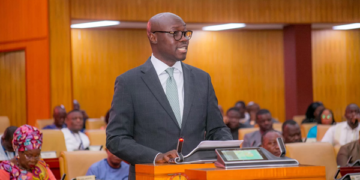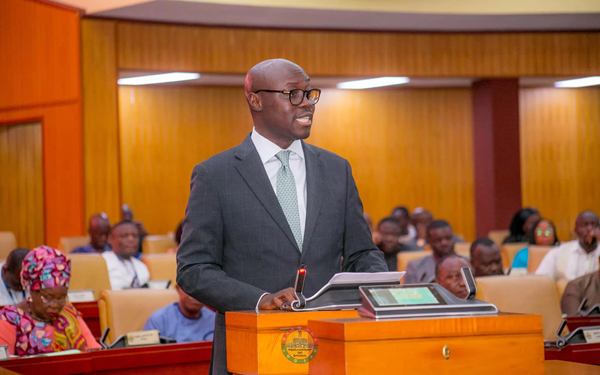Finance Minister Dr. Cassiel Ato Forson has stated that the Government of Ghana has no plans to renegotiate or extend the country’s ongoing programme with the International Monetary Fund (IMF), reiterating its commitment to fulfilling the programme’s objectives.
Speaking at a joint press conference with IMF officials in Accra on Tuesday, April 15, Dr. Forson made it clear that the government’s priority remains the full implementation of the three-year, $3 billion Extended Credit Facility programme, which was approved in May 2023.
“Renegotiating presupposes that you don’t believe in the programme and so you want to open up the conversation to look at other parameters of the programme. That isn’t the position of the government,” Dr. Forson stressed. “The government is committed to the implementation to achieve the objectives of the IMF programme.”
Ghana entered the IMF programme at a time of severe economic turbulence, characterized by soaring inflation, rising debt levels, currency depreciation, and dwindling foreign reserves. The programme, aimed at restoring macroeconomic stability, boosting fiscal discipline, and promoting debt sustainability, marked Ghana’s 17th engagement with the Bretton Woods institution.
Dr. Forson acknowledged that the country faced initial setbacks, including missed structural benchmarks and quantitative targets prior to the current administration’s tenure. However, he emphasized that the government is actively addressing these issues with strategic reforms designed to ensure fiscal accountability and sustainable growth.
Among the measures introduced is a comprehensive audit of government payables and financial commitments. “We have commissioned the Auditor-General, together with two international audit firms, to audit the payables and commitments to validate their legitimacy and values, and provide recommendations for corrective measures. The audit is expected to be completed within eight weeks,” Dr. Forson disclosed.
In addition, the Finance Minister announced a key legislative development to tighten procurement processes. “We have passed an amendment to the Procurement Act to ensure that the issuance of commitment authorisation—such as commencement certificates—by the Minister for Finance is a prerequisite for all central government procurements under the Authority or the Central Tender Review Committee,” he explained.
As part of efforts to enforce compliance across government agencies, Dr. Forson revealed plans to introduce a Public Financial Management (PFM) Commitment Control Compliance League Table. This innovative tool will publicly track and rank the performance of Ministries, Departments, and Agencies (MDAs) under the PFM Act, holding them accountable for fiscal discipline and transparency.
The reaffirmation of Ghana’s commitment to the IMF programme comes at a crucial juncture, as the country prepares for the second review by the IMF later this year. With reforms underway and strong political will asserted, the government appears poised to stay the course of economic recovery—despite the complex fiscal challenges ahead.

































